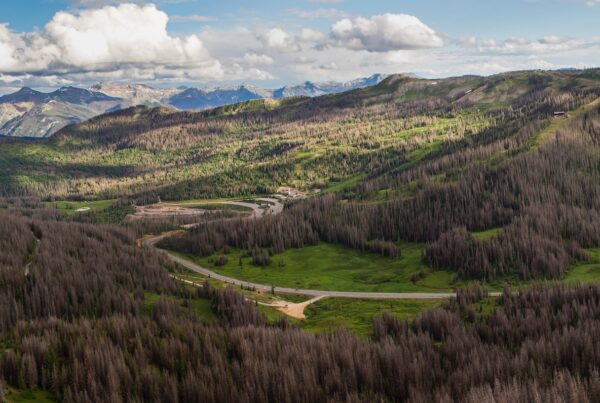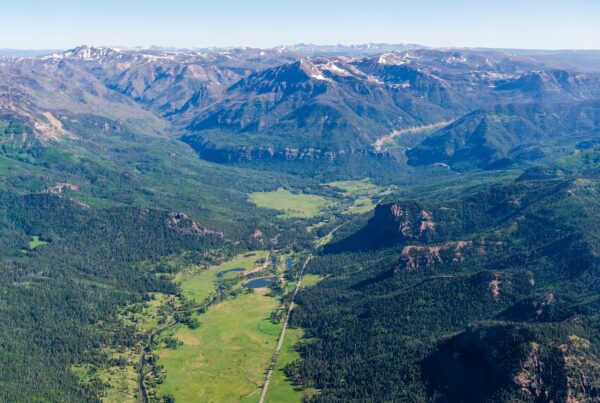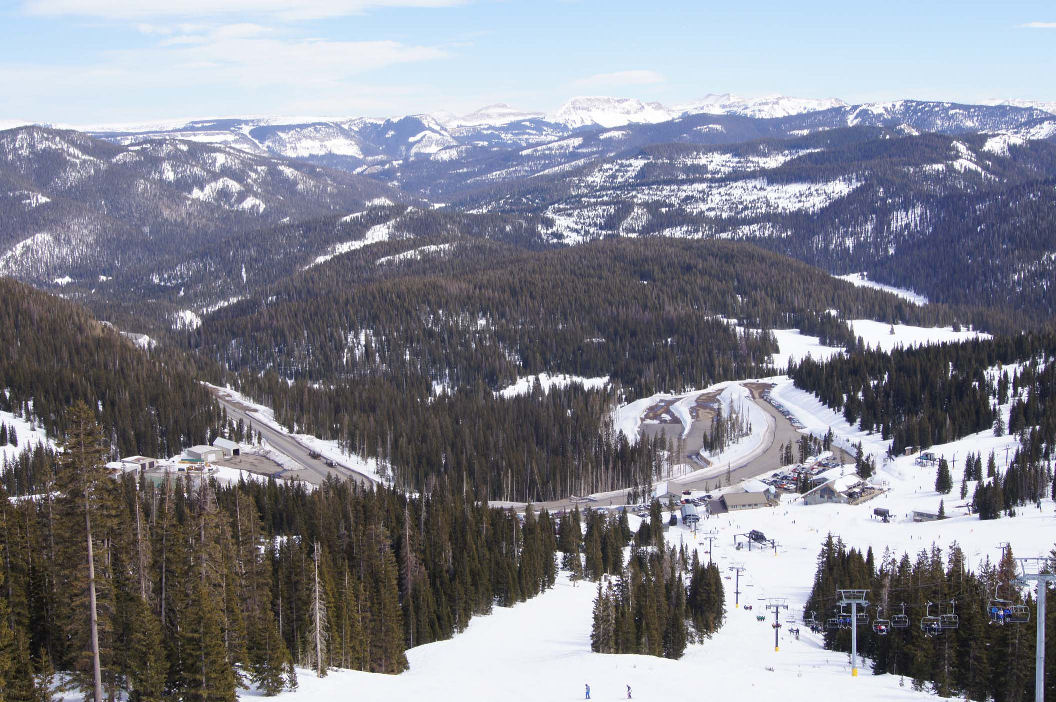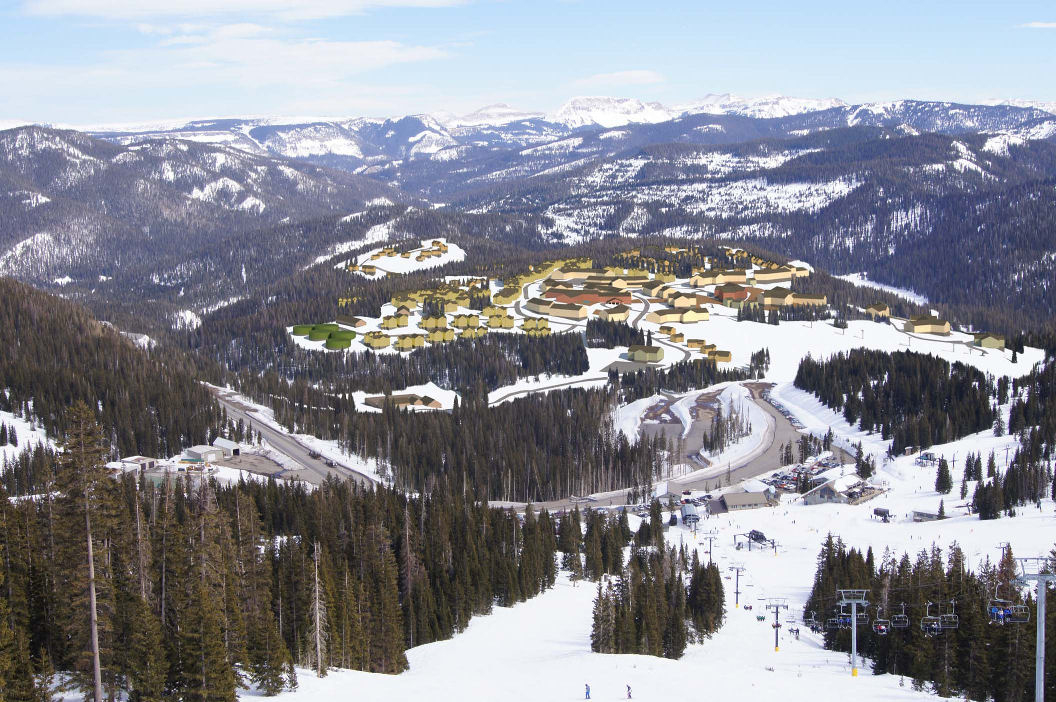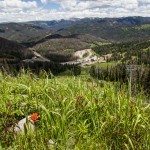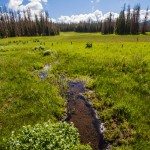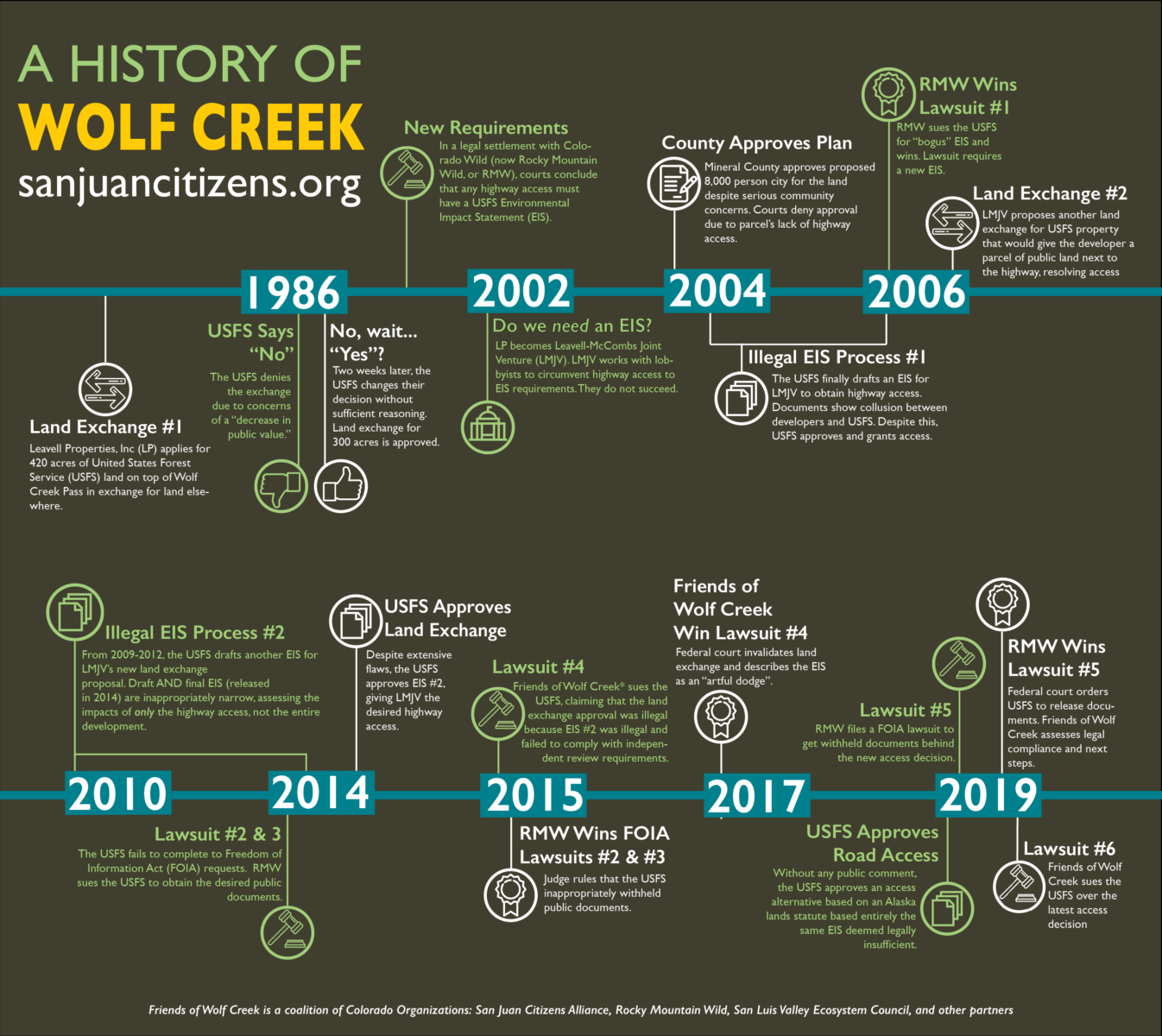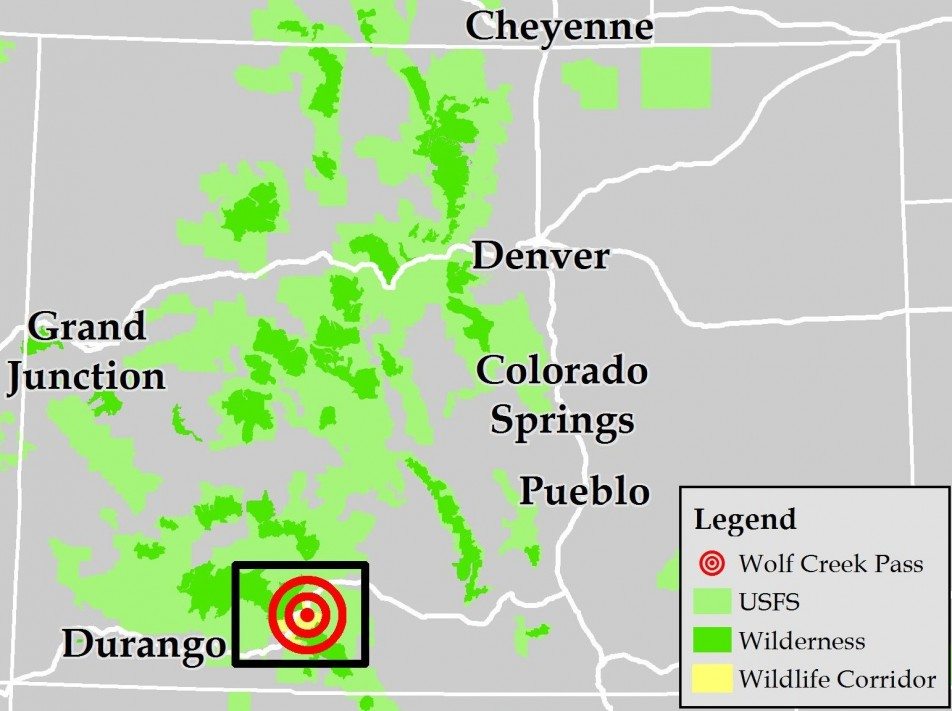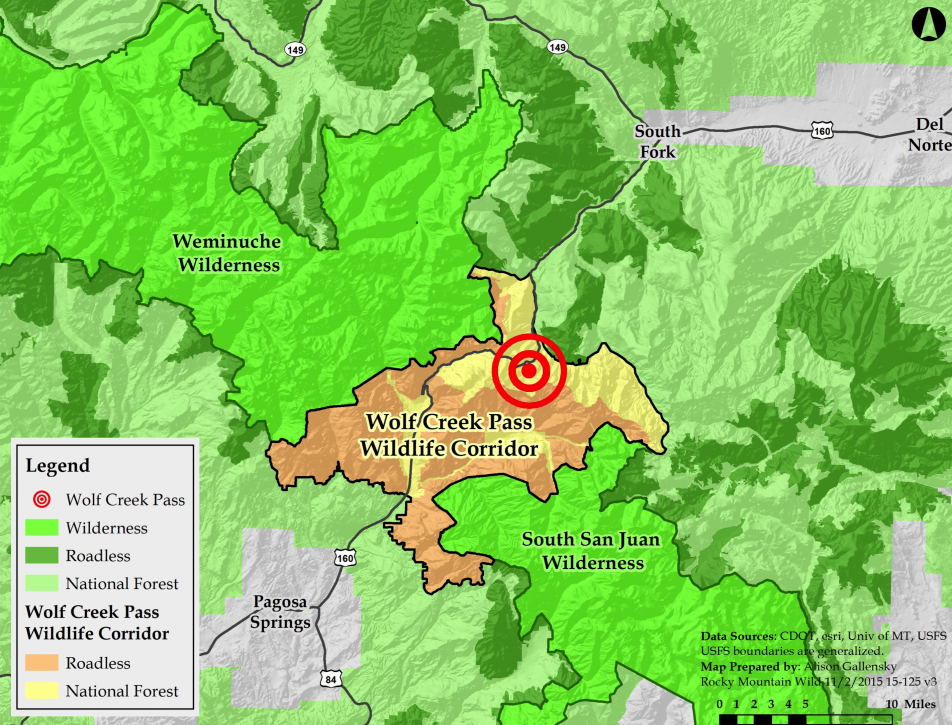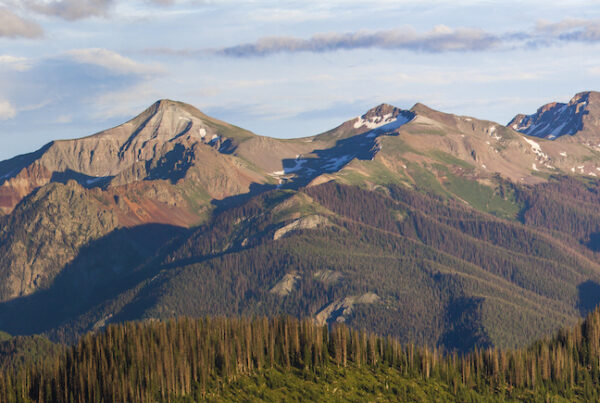We’ve been fighting for over ten years to protect Wolf Creek Pass, a critical wildlife corridor, from a massive 8,000-person resort development. Photo: Alex Pullen
VICTORY AT WOLF CREEK
Court Again Rejects Village at Wolf Creek Development Proposal
[accordion_slider id=”32″]
The Story
For decades, out-of-state developer B.J. “Red” McCombs has pursued his vision for a “Village at Wolf Creek” – a city of 8,000 people – at the top of Wolf Creek Pass. This massive development would be roughly the population of Aspen.
Wolf Creek Pass, 20 miles from the nearest town, is a remote landscape that is entirely surrounded by National Forest. Construction of the Village at Wolf Creek would dramatically impact the entire region. The proposal indefensibly disregards ecosystem health, wildlife needs, and public interests.
The “Village at Wolf Creek” development threatens:
- A critical southern Rockies wildlife corridor
- Backcountry recreation opportunities
- Nearby local businesses
- Rare, valuable fen wetlands
- Water quality and quantity for downstream land users and anglers
- Views from the highway and the Continental Divide Trail
The History
In 1986 Leavell Properties, Inc. (later joined by Texas billionaire B. J. “Red” McCombs to form the Leavell-McCombs Joint Venture, or LMJV) swapped land with the United States Forest Service to obtain a property on top of Wolf Creek Pass surrounded by Forest Service land. McCombs, who now spearheads the project, expanded the plan to his “Village at Wolf Creek.” In order to construct the Village at Wolf creek, however, LMJV needs Forest Service approval to gain year-round highway access to the isolated property.
Since the beginning, the “Friends of Wolf Creek” – a coalition of conservation groups from around the state – have fought to ensure the development is never realized. So far we’ve been able to keep construction at bay, forcing the Forest Service to hand over documents and rewrite woefully inadequate Environmental Impact Statements (EISs). In 2006, we sued the Forest Service for inappropriately colluding with the developer during environmental assessments, and won. Our partner Rocky Mountain Wild sued the Forest Service three times for disregarding Freedom of Information Act (FOIA) requests. Rocky Mountain Wild won the first two cases and the third is in process.
In May of 2017, we won another lawsuit, putting the development on hold yet again. A federal judge nullified the land exchange on grounds the Forest Service avoided a thorough analysis of the environmental impacts of development in their latest EIS and that they failed to meet independent review requirements. The judge agreed that the Forest Service shirked their responsibility by ignoring the immense impacts of building a city at 10,400’.
But McCombs and the Forest Service refused to accept the public’s verdict opposing the destructive project, and in February 2019 the Forest Service approved yet another scheme to give McCombs carte blanche for development. The 2019 decision simply hands over a paved access road to McCombs using precisely the same flawed environmental analysis used to justify the land exchange decision that was invalidated by the court in 2017. As we investigate the agency’s justification, the Forest Service finally started to hand over the documents behind its decision in March 2019, under court order, after fighting public transparency for 8 months.
It’s been a long 30-year journey, but we remain committed to ensuring the Village at Wolf Creek never defaces the heart of the San Juans.
For more detailed information please read the “Concise History of Wolf Creek.”
Views of Wolf Creek

A Tri-Fold Problem
We want the United States Forest Service (USFS) to stop making decisions to please out-of-state billionaires, but rather make decisions that are in the public interest – as they were created to do. We are certain that if they do their job correctly, the Village at Wolf Creek Pass will never be allowed. Read below for some of the key issues with the Village:
Collusion
The USFS has a history of colluding with the developers.
No Analysis
The USFS has avoided thorough analysis of the environmental impacts of development.
No Independent Review
The USFS has failed to meet independent review requirements.
No FOIAs
The USFS has disregarded two Freedom of Information Act (FOIA) requests. More about FOIAs.
 2. Environment
2. Environment
Wolf Creek Pass is a vital Colorado ecosystem
Key Migration Corridor
The area around Wolf Creek Pass (see maps below) is one of the most important wildlife movement corridors in the nation, and the most important wildlife linkage for lynx, bear, elk and other species in the San Juan Mountains. The Pass connects the South San Juan Wilderness with the Weminuche Wilderness and is also a core reintroduction area for lynx.
Water and Quality and Quantity
Extensive development could negatively impact the quality and quantity of water in the Rio Grande watershed, hurting downstream land users and anglers.
Rare Wetlands
Wolf Creek Pass is home to valuable fen wetlands, which are a specific type of wetland that are groundwater-fed and peat-forming. Fen wetlands support more diverse plant and animal life than other wetlands, enriching the biodiversity at Wolf Creek. They also help reduce the risk of floods and improve water quality.
Most Annual Snowfall
Wolf Creek Pass receives the most snowfall annually in Colorado, which provides ideal habitat for endangered Lynx and other species. The concentrated snowpack on top of the pass also contributes to late season flow to the Rio Grand River.
Trail Views
Wild, undeveloped places are special. The proposed Village would transform the unspoiled views of Wolf Creek into just another mega-development.
Backcountry Recreation
The pristine Wolf Creek Pass area offers unsurpassed backcountry recreation opportunities for skiers, anglers, hunters, and hikers. A large development would devalue these activities.
 3. Community
3. Community
Local communities will suffer the costs
Tax Revenues and Costs
Tax revenue would benefit towns far away, but public costs would fall on closer municipalities, placing the burden on communities that won’t financially benefit from the development.
Strain On Public Services
The “village” would increase pressure on local public services (e.g. emergency) in Pagosa Springs over 25 hazardous miles away. Thousands of tourists will also clog up traffic on the pass, which can be treacherous in winter.
Change Wolf Creek Ski Area Forever
The proposed development would forever change the unique, small remote Wolf Creek Ski Area.
Hurt Local Economy
The “village” and its new commercial center would compete with existing local businesses.
Recent News (More)
